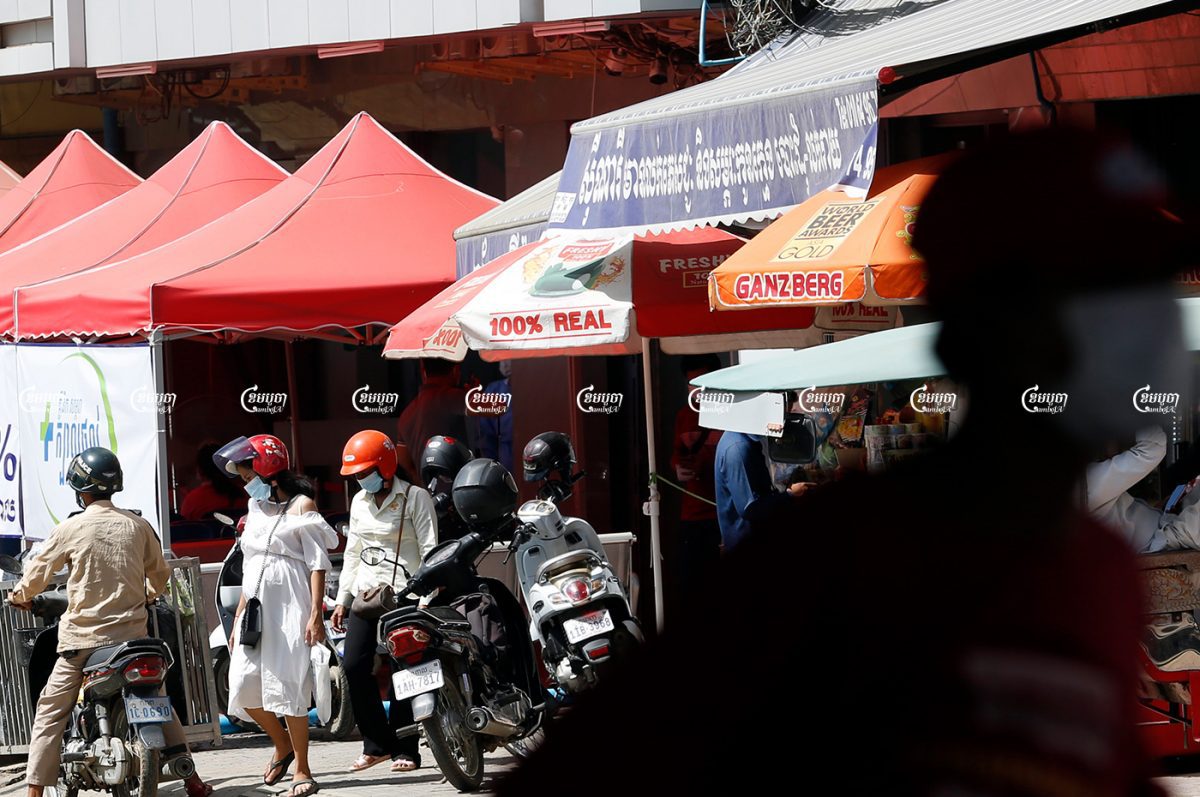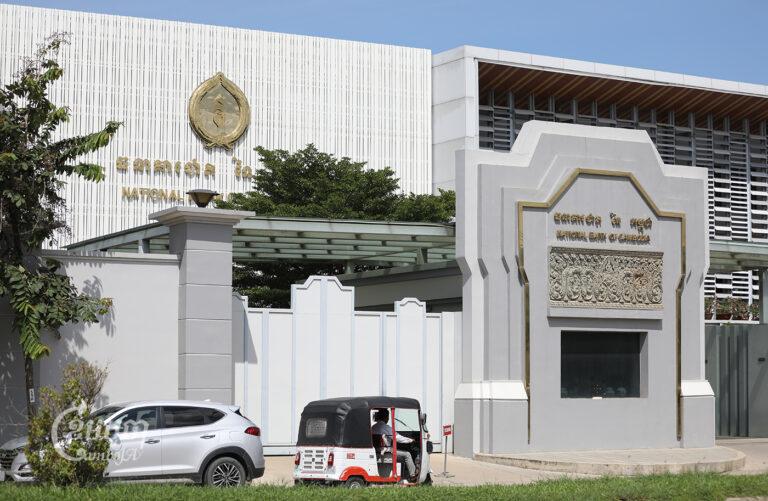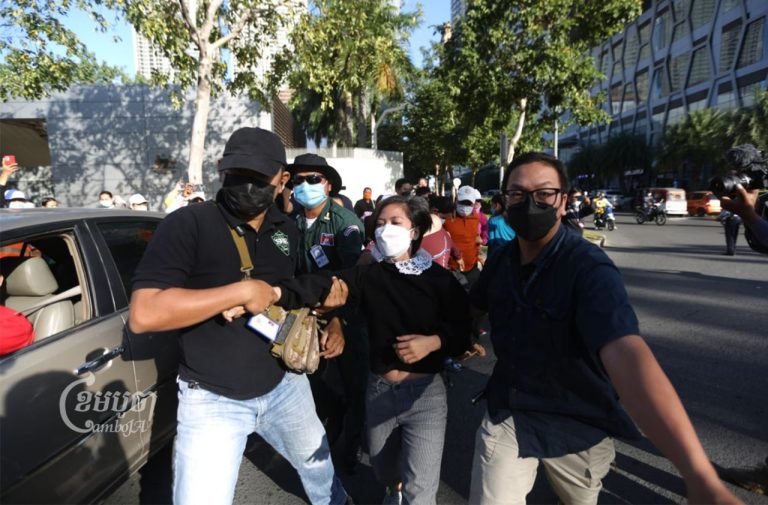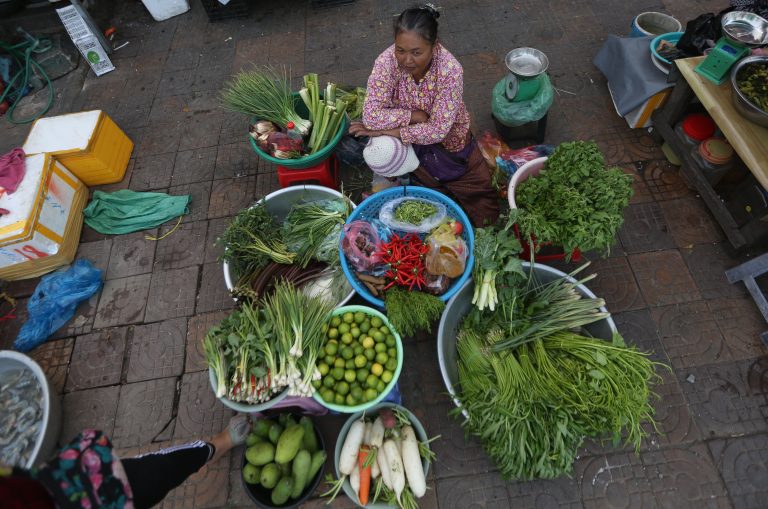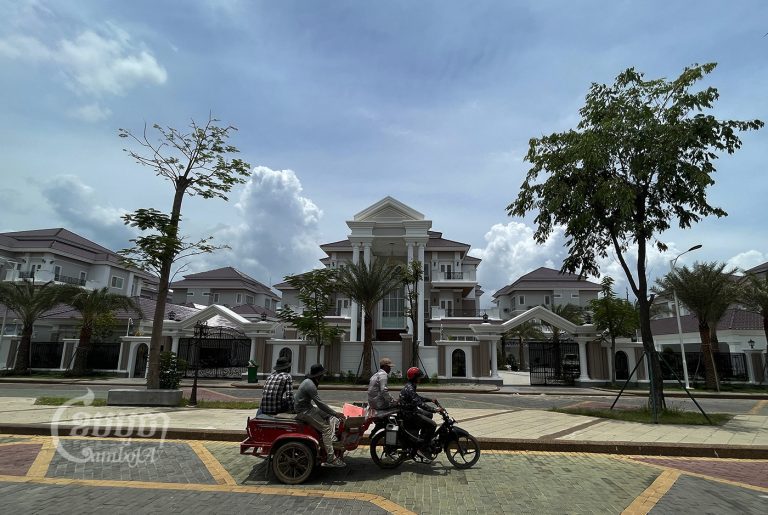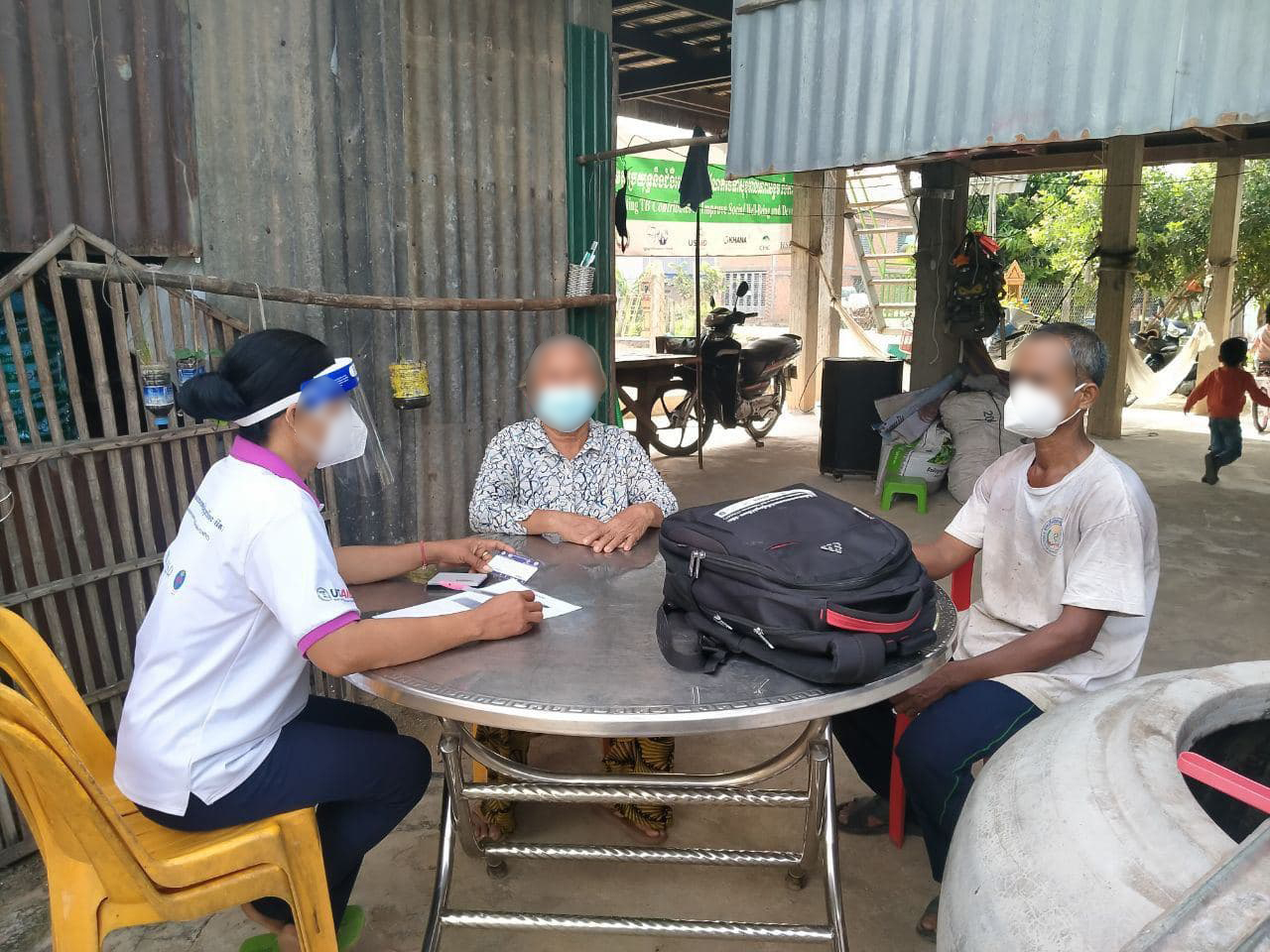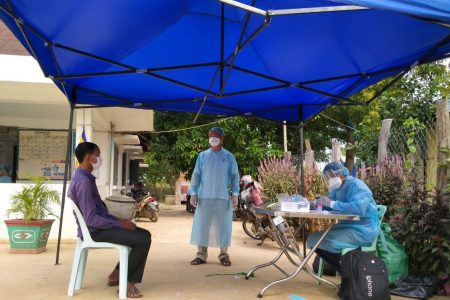With coronavirus cases continuing to spread in Cambodia, some pregnant women say they are concerned about whether they will be able to give birth safely in hospitals, while others say they can’t afford the costs of mandatory COVID tests.
Khon Chantheth, a garment worker in Takeo who is five months pregnant with her first child, said her pregnancy has been a source of constant financial stress.
“I have heard that every time I go to the hospital, I must get tested for COVID and I have to pay more. I am very worried that the money saved for childbirth is not enough,” she said.
Chantheth said she is hoping to be able to give birth naturally, as the cost would be lower.
“If I had to have surgery, I’m afraid I would not have the money for a private doctor [and my child would not survive],” she said.
While some countries recommend the vaccine for pregnant women, Cambodia does not. Some who work in garment factories or in jobs where they cannot socially distance say they face discrimination from health clinics that fear they are infected.
Stories have gone viral on social media of laboring women being turned away from clinics after failing to show a negative COVID-19 test.
“Obviously, we see on social media that there are some cases when a woman gives birth and goes to the clinic is not accepted, in some places, she was required to go to COVID for testing first, and that would have serious consequences for her,” said Chhim Channeang, general secretary of gender rights group NGO-CEDAW.
Channeang said pregnant women would be best served by going for regular prenatal checkups at the same clinic where they intended to give birth. But doing so is not always a possibility for those lacking money, or simply hoping to lower their risk of getting ill by leaving home as infrequently as possible.
Sa Rody, works at a shoe factory in Takeo and is six months pregnant. Because of her pregnancy she is unvaccinated, leading to significant concerns for her safety.
“My workplace is very risky, we cannot keep a distance from each other, we use the bathroom together, and I am afraid of getting infected soon,” she said.
Both she and her husband have struggled financially during the pandemic, with factories frequently closed, and Rody said she was concerned their lack of money will mean poor treatment.
“If I had a positive COVID-19 test, I’m worried that the doctors will discriminate against me and that we will not have enough money, so the doctors will not come to see us,” she said.
Waiting times for COVID tests, meanwhile, can cause additional stress for new mothers.
Un Sengla, who gave birth in June, said when she went into labor she was turned away from her local health center, with a doctor telling her it was too early. After hours of pain, she went to Calmette Hospital, but was told she would have to wait an hour or two for a COVID test before seeing a doctor.
She said staffers told her: “If I can wait, I can wait to give birth there, but if I cannot wait, I can go to another hospital.”
Growing weaker and with her pain worsening, Sengla left for a private hospital, where a doctor told her she needed an emergency cesarean section or the baby’s life and hers would be in danger. Now, she is left figuring out how to pay a $650 bill for the surgery and aftercare.
Dr. Ty Sovannaroth, the director of Mearda clinic and Maternity, told CamboJA that her clinic continues to accept women as usual, but follows the mask and social distancing guidelines of the Ministry of Health and WHO. COVID tests are required for pregnant women as well as for caregivers, and those who test positive are sent to the hospital.
“If the test shows COVID clinically, we are not eligible to deliver.”
Chem Thorn, director of Khvav commune health center, told CamboJA that COVID tests are necessary for those giving birth and that measures are in place to ensure mothers can safely deliver even if they test positive.
“If she tests positive, we have a car to transport her to the referral hospital because the referral hospital has a team in place for child births by positive mothers,” he said.
Chhou Chhuon, director of the Takeo Provincial Referral Hospital, told CamboJA that the hospital has had 30 births where the mother tested positive for COVID-19, and all were delivered safely.
“Childbirth is very dangerous, but we follow our technique, it is not a problem.” he said.
Each district, he said, has health centers with protocols in place for women to safely give birth even if they have the virus.

But the spread of COVID has left some mothers struggling to get adequate treatment, explained Saphon Somalireasmey, head of research and advocacy at the Reproductive Health Association of Cambodia.
“They are very vulnerable to infection, especially in postpartum conditions, and a large portion of the health force is devoted to the prevention and treatment of COVID patients, which is on the rise in some areas. This can lead to a lack of timely response to the need to seek maternity services,” she said.
The anxiety unvaccinated mothers face amid the pandemic, meanwhile, can contribute to other health issues — particularly for the country’s poorest.
“Society as a whole should pay attention to the delivery service during COVID, regardless of whether it is a non-priority service, it is an emergency and life-saving service for two people at a time,” she said.
Somalireasmey said it was critical that pregnant women take extra care of their health, including by staying away from anyone who might be at high risk of infection — a near impossibility for those working in the garment sector.
“They must monitor the health of the fetus according to the doctor’s schedule and be ready with all the budget, materials and preventive measures possible before delivery.” she added.
Or Vandine, spokeswoman of the Health Ministry, said that all services are still being provided for pregnant women, though there are limits on what private clinics can do.
“Public services continue to be provided, there is nothing to prevent the general patient and the midwife from going to the hospital as usual, just like before the COVID era,” she said, adding that special teams are in place for women who test positive and that there should be no discrimination.
According to the report of the National Social Security Fund, from January 1, 2020 to December 31, 2020, 80,499 women gave birth to 81031 children, representing a steady rise in birthrate. In 2019, 77,449 women gave birth to 77,966 children and in 2018, 65,054 women gave birth to 65,534 children.


